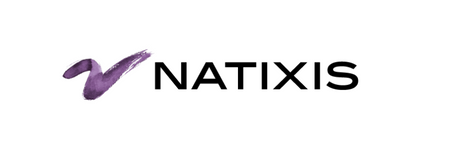Read time : 3 mins
Level : Intermediate

9 Words You Should Never Use To Describe Yourself on Your Resume
By Laura Berlinsky-Schine
You toil over your resume, adding the right keywords, the best descriptions, and the perfect examples. But hiring managers typically only spend a few seconds glancing through it, on average.
You have limited space – and time – to make yourself stand out. And you may be unknowingly wasting it – if you’re using these words and phrases.
9 Words To Avoid on Your Resume
1. Go-Getter
It sounds nice enough, but the go-getter doesn’t say anything that descriptive about you. Sure, you’re hardworking and have goals, but chances are, so does everyone else applying for the job. Similar words, such as intelligent and proactive, also convey very little about your drive and just show that you have a healthy self-perception. And saying it isn’t going to make you stand out.
It’s best just to eliminate it. Alternatively, give a concrete example of a time you went above and beyond.
2. Results-Oriented
Of course, you’re aiming to produce results. Like no. 1, this is pretty much a given. Instead of saying you’re results-oriented, back up your claim with data – proof of the results you’re proud of.
3. Bold
How, exactly, are you bold? Maybe you have a dynamic personality, and while that’s great, it doesn’t say a whole lot about you as a professional. It could even imply something negative – perhaps you make risky decisions.
Instead of saying you’re bold, showcase your personality in your cover letter, such as by describing a time you had to make a tough decision .
4. Approachable
Again, this is a facet of your personality that’s nice to have but won’t help you clinch the job offer. Like “team player” or “likable,” it’s a desirable quality, but it doesn’t convey much about you as a professional. This will come through in your interview if and when the time comes.
5. Detail-Oriented
Here’s a buzzword that DOES matter in the workplace – but unfortunately, it’s easy to list it on your resume, whether or not you have it.
This is a time when you should show rather than tell . How have you focused on the details? Have there been times when you caught an error others had missed? Did you solve a particularly complex problem by focusing on the details?
6. Adaptable
Now is a great time to be adaptable, and it’s undoubtedly a quality employers look for. However, it’s not enough to simply say you’re adaptable – get specific. For example, were you able to pivot to a remote-work environment successfully? Have you onboarded yourself with new tools quickly? What did you DO to adapt?
7. Dynamic
While it sounds good, dynamic adds close to nothing to your resume. It means that you have plenty of energy, but, once again, that’s hard to prove – and it’s better to show in your interview .
8. Passionate
Passion and enthusiasm for your work are palpable. If this is a quality you bring to the table (and hopefully it is), it should come through in your application materials – you shouldn’t need to use up precious resume space to say it out loud. To ensure you are conveying your enthusiasm to your audience, get another set of eyes on your cover letter – a friend or colleague can let you know if your passion is evident.
9. Innovative
Here’s another buzzword. And while employers certainly want innovative employees, this is yet another time when you need to show, not tell. Perhaps, for instance, you could provide an example of a particularly creative solution or idea you came up with.
What You Should Say
So, what DOES belong on your resume? Instead of useless buzzwords, jargon, or meaningless words and phrases, focus on action verbs (e.g., achieved or launched), quantifiable results , and concrete examples . Remember to use plenty of keywords, too, to help you clear the applicant tracking software (ATS). These are the elements that will truly set you apart.
